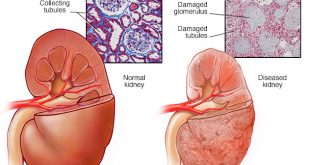Introduction
Chronic kidney disease (CKD) means that one’s kidneys are not functioning as well as normal. Fortunately, most cases are mild or moderate. Early detection is important. Treatment given appropriately will slow down the progression of kidney disease to prevent the need for life-long dialysis treatment.
What are the stresses of CKD patients?
“Chronic” does not necessarily mean severe as some may think. There are several levels of severity for CKD with many having only mild CKD.
When faced with the diagnosis of CKD, many will perceive and interpret it as threat, challenge or loss. Soon, feelings such as anger, fear, depression, anxiety, confusion, frustration and helplessness may appear. Further denial of the impact of disease will only serve to harm the patient more both physically and emotionally.
In more advanced stages of CKD, one may have the following worries and concerns:
- Changes in bodily appearance
- Limitation of fluid and food intake
- Presence of nausea, vomiting, muscle cramps and fatigue
- Loss of bodily function
- Fear of being alone and decreased social life
- Vacation limitations
- Uncertainty about future and job interference
- Cost of dialysis treatment
- Role reversal in family
It may be difficult to maintain a relative balance of mind, and this may lead patients to avoid clinic visits, withold treatment and eventually suffer worse outcomes.
How can you help as sibling?
Good social support has been shown to improve CKD patients overall outcomes. As a sibling of a CKD patient, you form the integral part of this social support system. You may help in number of ways:
- To assist in frequent clinic visits that are often required at more advanced stages of disease
- To provide company and transportation to healthcare facility
- To ensure compliance to the medications prescribed by physician
- To provide understanding in the nature of disease and coping with the need for change in diet and nutrition
- To provide constant emotional support as depression is more frequent in individuals with CKD than the general population.
Emotional support
Denial, anger and depression will affect CKD patients negatively. The stress of coping with CKD may exceed the patient’s capability to cope.
As a sibling who has grown up with the CKD patient within the same family structure and environment, you will have greater trust from the patient. You could help the patient to open to the idea that difficult emotions are a normal part of life and unavoidable. You can help the patient to learn new ways of coping with CKD and generate positive emotions like happiness, satisfaction, hope and joy.
These positive attitudes will ensure patient adherence to treatment and change of lifestyle that may help in retarding the progression of disease.
Coping with sibling rivalry and jealousy
The diagnosis of CKD often leaves a feeling of despair and creates low self-esteem particularly in a teenage patient. These ill feelings may perpetuate into anger and jealousy in the patient himself/ herself as he/she may perceive the illness as unfair or a misfortune compared to other healthy siblings.
On the other hand, the patient will naturally receive more attention and time from the parents causing sibling rivalry. A strong foundation of close bonding with greater understanding and tolerance from other healthy siblings is vital in helping the patient to overcome the disease with optimism and determination.
Overcoming sibling rivalry and jealousy will lead to development of a positive attitude and nuture greater self-confidence in the patient to cope with CKD.
References
- Meier, M. (2005). Emotional Issues Faced by CKD Patients (Kidney Beginnings). AAKP Library: Emotional Issues. Retrieved Sept 21, 2012, from http://www.aakp.org/aakp-library/emotional-issues-faced-by-ckd-patients
- Kreuter, S.W (2005). The CKD Support System. AAKP Library: Emotional Issues. Retrieved Sept 21, 2012, from http://www.aakp.org/aakp-library/CKD-Support
- Bates, K. (2004). Self-Confidence and the Teenage Dialysis Patient. AAKP Library: Emotional Issues. Retrieved Sept 29, 2012, from http://www.aakp.org/aakp-library/Teenage-Dialysis-Patient
- Wojtasiak, E. (2005). How patients with end-stage renal disease manage their condition. Rocz Akad Med Bialymst, 50 Suppl 1, 129-132.
- Spinale, J., Cohen, S. D., Khetpal, P., Peterson, R. A., Clougherty, B., Puchalski, C. M., et al. (2008). Spirituality, social support, and survival in hemodialysis patients. Clin J Am Soc Nephrol, 3(6), 1620-1627.
- Yeh, S. C., & Chou, H. C. (2007). Coping strategies and stressors in patients with hemodialysis. Psychosom Med, 69(2), 182-190.
| Last Reviewed | : | 20 June 2016 |
| Writer | : | Dr. Ng Eng Khim |
| Accreditor | : | Dr. Sunita Bavanandan |
 PENDIDIKAN PESAKIT Kementerian Kesihatan Malaysia
PENDIDIKAN PESAKIT Kementerian Kesihatan Malaysia
